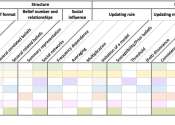New method could yield fast, cross-country quantum network
Quantum computers offer powerful ways to improve cybersecurity, communications, and data processing, among other fields. To realize these full benefits, however, multiple quantum computers must be connected to build quantum ...



